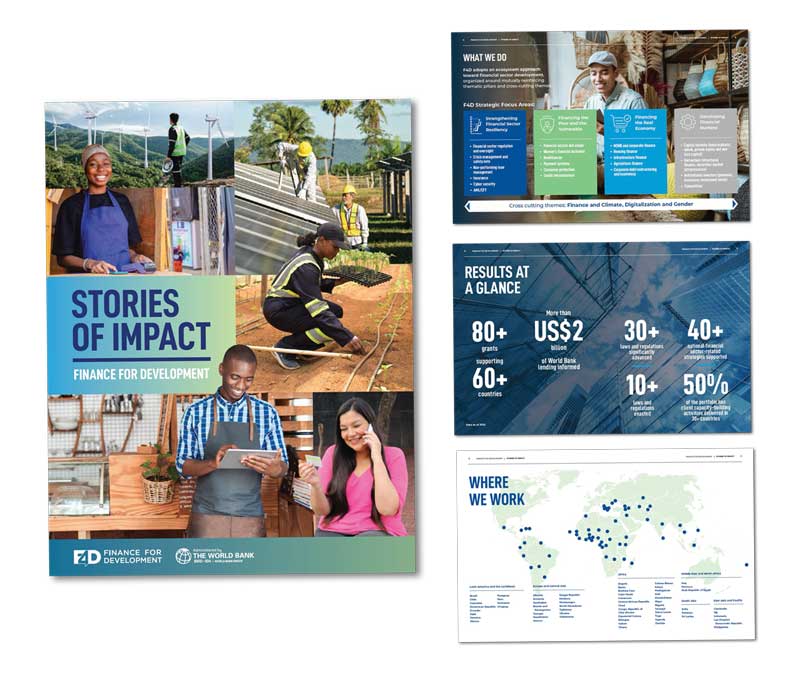
Impact Stories
F4D M&E Framework
A strong focus on results is at the core of F4D’s program delivery. A well-functioning monitoring and evaluation system not only serves as an accountability and transparency mechanism, but, most importantly, supports learning and evidence-based decision making.
F4D developed a rigorous Monitoring and Evaluation (M&E) Framework which articulates the program’s results-based management approach. The Theory of Change, Results Framework, and Evaluation and Learning Plan are used as tools for accountability, effective communication, strategic decision-making, and learning. In its results measurement approach, F4D particularly emphasizes the importance of outcomes, reflecting the advantage of pooling funds together to deliver results at scale as envisioned by the Umbrella concept.

F4D's Theory of Change
is the foundation of F4D’s M&E framework. It explains what development outcomes or impact F4D aims to contribute to; what does it take to realize these outcomes; and what activities will be funded. ➜
Results Framework
F4D reports results using a three-tier approach. F4D’s Results Framework serves as a key management tool to monitor the progress and report on the results expected, as presented in F4D’s Theory of Change.
F4D M&E FrameworkTier 1: Development Results
show what development outcomes and impacts F4D contributes to. These are long-term outcomes that are expected as the collective efforts of countries and their development partners take hold and can be influenced by external factors.
Tier 2: Enabling Foundations
capture intermediate results (outputs and short-term outcomes) which are directly attributed to F4D grants. These illustrate the enabling foundations needed as preconditions for Tier 1 development outcomes to happen.
Tier 3: Operational Performance
shows development effectiveness of F4D with the projects’ quality and performance, and the value of F4D’s comparative advantage in leveraging World Bank lending operations.
Leveraging Knowledge to Amplify Impact
Systematically drawing on lessons learned, capturing best practices, disseminating findings, and feeding the knowledge into grant design and implementation help amplify F4D’s impact.
F4D prioritizes systematic knowledge sharing, both internally and externally, to increase operational impact and foster collaborative approaches within the World Bank and with partners.
F4D Knowledge and Learning framework includes select evaluations, assessments, and surveys to generate evidence of results and enhance the value add of F4D in contributing to the overall financial sector reform agenda. Data and information generated through these activities are turned into practical insights and shared among practitioners and development partners to scale up successful cases, learn from failures, promote accountability, and ultimately maximize development outcomes.
